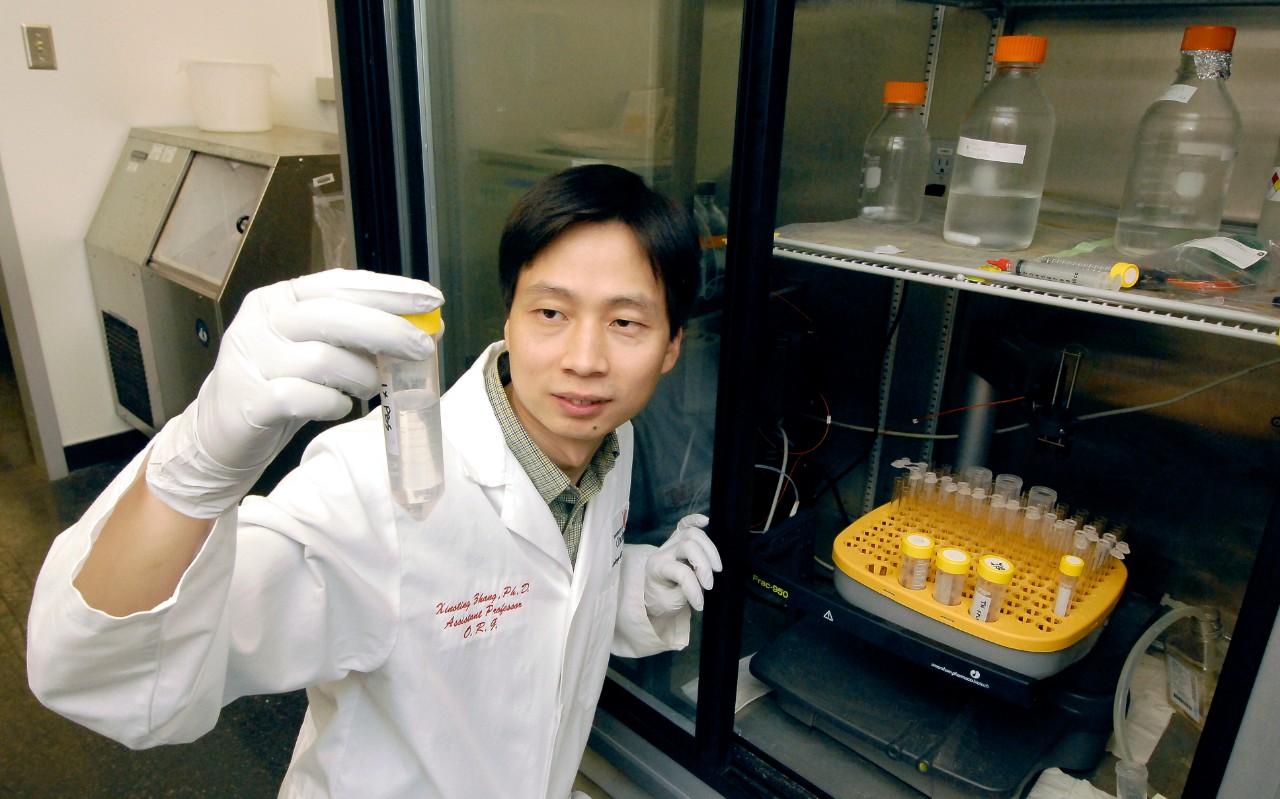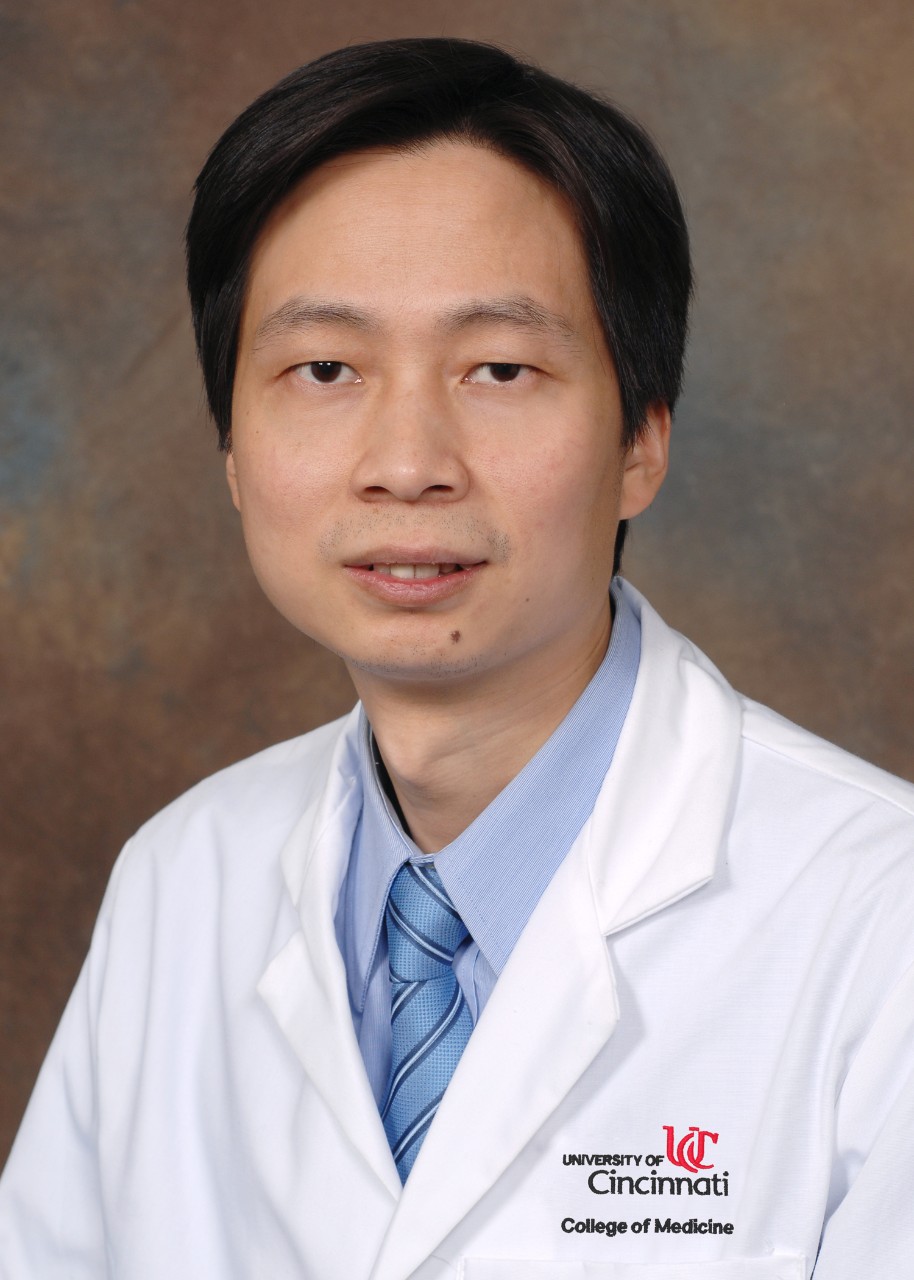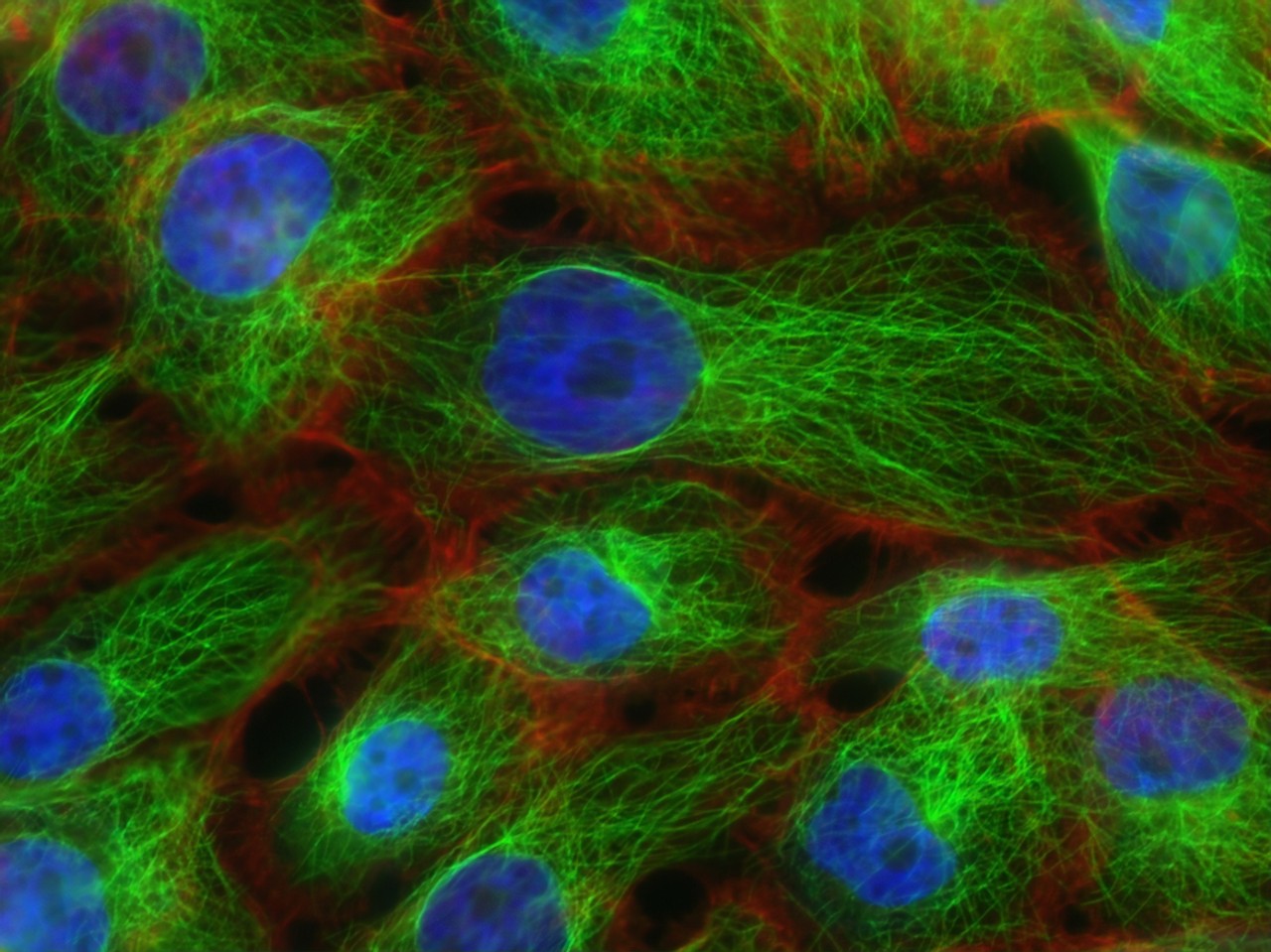
A new co-driver in breast cancer
UC researchers discover 'gene cooperation' in cancer growth and can target treatments to stop it
Cooperation is generally a good thing — working together to reach a goal.
But in the case of cancer, it can be detrimental. University of Cincinnati researchers have discovered that cooperation between two key genes drive cancer growth, spread and treatment resistance in one particularly aggressive type of breast cancer.
The good news is, though, with this knowledge, they can continue to aim their targeted treatments at these genes, singularly and together, to stop breast cancer in its tracks.
This study is published in the March 9 online edition of the journal Cell Reports.

Xiaoting Zhang, PhD, professor and Thomas Boat Endowed Chair in UC’s Department of Cancer Biology, director of the Breast Cancer Research Program and member of the University of Cincinnati Cancer Center.
“According to the American Cancer Society’s estimate, over 280,000 new cases of invasive breast cancer will be diagnosed in women in 2021,” explains Xiaoting Zhang, PhD, professor and Thomas Boat Endowed Chair in UC’s Department of Cancer Biology, director of the Breast Cancer Research Program and member of the University of Cincinnati Cancer Center, who led this research. “Like many other cancers, breast cancer cells are fueled by mutations and overproduction of ‘driver’ genes, which lead the process of cancer development.”
He says one of these genes, called HER2 (human epidermal growth factor receptor 2), accounts for about 20% of all human breast cancer cases, and while there are some therapies to target it, unwanted side effects and treatment resistance often occur in patients, causing relapse.
“There are about a dozen additional genes, including one called MED1, located within the same chromosomal region where HER2 and other genes are multiplied in breast cancer, but it’s not known whether any of these genes are simply ‘passenger’ genes, and let HER2 to do the driving, or actually collaborate with the gene to play significant roles in the development, spread and treatment resistance of this type of breast cancer.”
To investigate this, the team created an animal model with an overproduction of both genes, HER2 and MED1, in the mammary gland.
This helped researchers discover the key role MED1 played in helping HER2 promote breast tumor growth, spread and treatment resistance. They found that the genes could in fact work with each other to further speed up their production and activities, which in turn promotes rapid cell multiplication, movement and invasion to spread cancer and cause treatment resistance.

Breast cancer cells. Photo courtesy of the National Cancer Institute.
Zhang adds that previous research has shown that MED1 has a role in treatment resistance in another type of breast cancer, ER+ (estrogen receptor positive). This UC study established MED1 as a key driver in the development and treatment resistance of two major kinds of breast cancer.
“Our findings suggest that targeting MED1, alone and in combination with current therapies, could be an effective treatment strategy for nearly 90% of breast cancer patients in clinics and combat treatment resistance to two widely used breast cancer therapies,” Zhang says.
Zhang and his team have already developed a treatment targeting MED1 specifically in tumors, using RNA nanotechnology similar to that used for the COVID-19 vaccines, and have observed positive outcomes. This technology is currently patent pending.
Creating foundations for future research, careers
Yongguang Yang, PhD, first author on this study and a research associate in Zhang’s lab, says the work he’s done on studying the roles of these genes in cancer and treatment resistance is eye-opening and takes a true “teamwork” approach.
“Working together as a team is very important in this process, as collaborations with the basic cancer biology researchers, clinical teams and physicians ensure our access to their unique insights and firsthand clinical experience, data and samples,” he says. “These findings are exciting and relate very closely to how this cancer impacts people. This new animal model we created has a wide range of future applications and will allow us to continue to study basic molecular mechanisms of this type of breast cancer to find and test new therapies.”
The new model we created has a wide range of future applications and will allow us to study basic molecular mechanisms of this type of breast cancer to find and test new therapies.
Yongguang Yang, PhD first author, research associate in Zhang's lab
“It was very exciting to be able to not only conduct my graduate studies on something so innovative and impactful as identifying new ways that breast cancers function, but also to develop potential applications for the future of cancer treatment,” adds co-author, Marissa Leonard, PhD, a recent doctoral graduate of the cancer and cell biology program at UC. “One or the other is often seen in research labs, but doing both is something I would consider a rare opportunity.”
“The scientific experience, knowledge and writing skills I gained from Dr. Zhang’s lab and our graduate program at UC have greatly broadened my horizons and allowed me to familiarize myself with a wide range of scientific concepts,” says Leonard, who is now a medical writer. “These broad, laboratory-based skill sets bode well for many different career paths, too, whether that includes continued research, medical writing, regulatory science, patent law, teaching or others.”
Impact Lives Here
The University of Cincinnati is leading public urban universities into a new era of innovation and impact. Our faculty, staff and students are saving lives, changing outcomes and bending the future in our city's direction. Next Lives Here.
Stay up on all UC's COVID-19 stories, or take a UC virtual visit and begin picturing yourself at an institution that inspires incredible stories.
Authors and collaborators on this study also include UC breast oncologists Elyse Lower, MD, and Mahmoud Charif, MD; pathologist Jiang Wang, MD, PhD; cancer biology researcher Jun-Lin Guan, PhD, and his lab members Syn Yeo, PhD, and Mingang Hao, PhD; Zhenhua Luo, PhD, of the Cincinnati Children’s Hospital Medical Center; and Gregory Bick, PhD, and Chunmiao Cai, PhD, from Zhang’s laboratory.
This research was supported by the National Cancer Institute (R01CA197865 and R01CA229869), Ohio Cancer Research Seed Grant, University of Cincinnati Cancer Center and Ride Cincinnati Awards. Researchers cite no conflict of interest.
Related Stories
Ohio could soon make breast cancer screenings more affordable
May 9, 2025
The University of Cincinnati Cancer Center's Ann Brown was featured in Local 12 and Cincinnati Enquirer reports on a bill introduced by Rep. Jean Schmidt in the Ohio legislature that seeks to eliminate out of pocket medical expenses such as copays and deductibles associated with supplemental breast cancer screenings.
Preparing students for artificial intelligence in education
May 8, 2025
Laurah Turner, PhD, associate dean for artificial intelligence and educational informatics at the University of Cincinnati's College of Medicine, recently joined the For The Love of EdTech podcast to discuss the usage of personalized learning and AI coaches to enhance educational experiences.
UC lab-on-a-chip devices take public health into home
May 8, 2025
University of Cincinnati engineers created a new device to help doctors diagnose depression and anxiety. The “lab-on-a-chip” device measures the stress hormone cortisol from a patient’s saliva. Knowing if a patient has elevated stress hormones can provide useful diagnostic information even if patients do not report feelings of anxiety, stress or depression in a standard mental health questionnaire.
